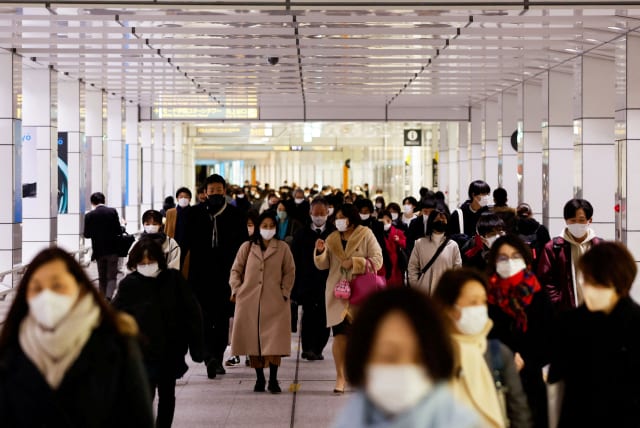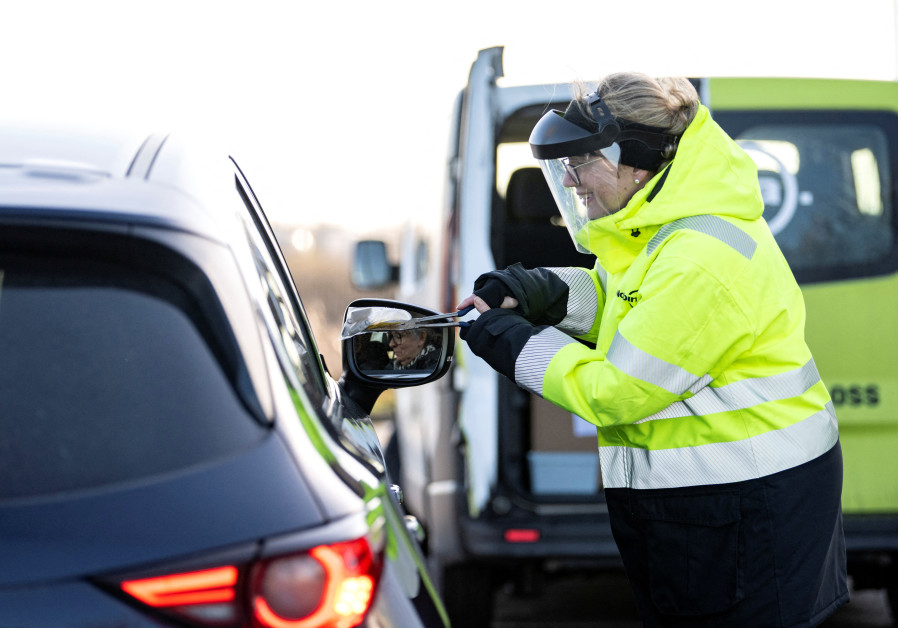The struggle between individual rights and public well-being

You can’t find a single democratic government that has not experienced a weakening in public trust and more tension with their own legislature due to COVID-19.
Putin seems to have identified and exploited the “corona of democracy.” You can’t find a single democratic government that has not experienced a weakening in public trust and more tension with their own legislature due to COVID-19.
The struggle between individual rights and public well-being has led to mass demonstrations, threatened coalitions from Canada to Europe, from Israel to Australia and New Zealand, and even overthrown governments. In contrast, it is the local government, the mayors and counties, who have surpassed expectations, earning increased public support.
So, what exactly is the difference between the corona of democracies that threatens governments and provokes war in Europe, and the corona of local governments that have led to dramatically different results? The way to prevent global upheaval in the future lies in our ability to answer this question.
In a Canadian study conducted between the second and third waves, researchers tried to quantify citizens’ compliance with closures and isolations. They sought to analyze whether there was a recipe that could potentially increase public cooperation. The results concluded that three components were required to enhance compliance: clarity, internal logic, and recognition of social norms.
With regard to clarity, it appears that most governments painted a straightforward picture for citizens about the medical implications of the virus and the basic data, such as the total number of patients who had been infected and who had died. However, this transparent information did not continue through to traditional media, where the more complex questions regarding the vaccines and their efficacy arose.
This led to protests and demonstrations, causing upheaval in central governments and struggles within coalition governments.
With regard to logic, governments that acted with uniform guidelines encountered less opposition than those that acted inconsistently and enacted ever-changing guidelines.
Governments that acted inconsistently in their Corona-19-related policy encountered increased public resistance that resulted in unstable governments. The public sought internal logic and sober rationality from their leaders, and without it there was minimal compliance.
In many democracies, the central government did not give sufficient consideration to the question of social norms. For example, in Israel, they relied on parents to report their children’s exposures and test results. Many parents assumed that the neighbors were cheating.
Then, the government sought to place this responsibility on teachers, but they failed to anticipate the reluctance of the teachers to cooperate and the legal difficulties in enforcing this policy.
Of greater concern was the social expectation that schools would remain open or reopen as quickly as possible. Without the social norm of schooling, parents and governments became adversaries. Little by little, COVID-19 became a disease that not only attacks people, but that preys upon democratic governments, who find themselves pitted in a struggle between the individual and the larger community.
IN AN attempt to understand why Putin is acting now, one theory is that COVID-19 and its impact has weakened the credibility of central governments of Western democratic countries. It points to the fact that France, Canada, and Britain are facing demonstrations and economic instability.
In comparison to the central government, local governments appear to have gotten stronger. A recent study shows that the Israeli public is generally satisfied with the services that they have received from their local authorities.Here too, there are specific elements that have led to success. First, contact with the public, including regular meetings, and paying proper attention to constituents.
COVID-19 caused many in the central government to retreat, meeting the public remotely and through cameras. Consequently, they were distanced from the feelings of the public and they did not always accurately read and understand their moods and concerns.
Local leaders who stood in long lines for testing visited the sick and then isolated them together with emergency neighborhood volunteers and staff. They allowed individuals within the community to initiate projects, succeeded in deepening their relationships with residents despite the challenges. This is something a more remote central government cannot do.
In addition, local governments knew how to stay relevant and available throughout the difficulties. They had the ability to respond through social networks and through meetings. They were able to foster mental flexibility, encouraging local individuals to address challenges. All of this created the trust that is being expressed in recent surveys.
For example, at the beginning of the first wave, we identified that test results were being delayed due to the transport of the test samples, which was entirely dependent on Magen David Adom (MDA) ambulances. Then, we made the decision to allocate vehicles and drivers from the local Security Department to transport the tests from Efrat to the laboratories in Jerusalem.
Our ability to more quickly identify COVID-19 patients enabled patients to isolate themselves, helping to limit exposures and stop the spread of infection.
The aforementioned weaknesses demonstrated by central governments have simultaneously led to global and internal instability and the strengthening of local governments.
The conclusion that should be drawn from these observations is a series of actions that will strengthen and give independence to local governments, granting them extensive powers, freedom from budgetary constraints, and providing them with an array of tools to help them manage the locality.
Israel must do more to decentralize powers in accordance with OECD recommendations to promote the Basic Law on local authorities. They must allow for independence in the areas of education, planning and construction, transportation, and civil security.
The central government must recognize that the heads of local authorities are elected on the basis of a local platform that crosses parties and sectors, one that includes many professionals with a vision, and recognizes those who grew up here and those who chose to make this place their home.
We don’t need additional commissioners from the central government. We need to place our trust in the local government that has already demonstrated its ability to lead and implement. Giving power back to local authorities is the way to prevent the next upheaval. The writer is the mayor of Efrat.
Jerusalem Post Store
`; document.getElementById("linkPremium").innerHTML = cont; var divWithLink = document.getElementById("premium-link"); if (divWithLink !== null && divWithLink !== 'undefined') { divWithLink.style.border = "solid 1px #cb0f3e"; divWithLink.style.textAlign = "center"; divWithLink.style.marginBottom = "15px"; divWithLink.style.marginTop = "15px"; divWithLink.style.width = "100%"; divWithLink.style.backgroundColor = "#122952"; divWithLink.style.color = "#ffffff"; divWithLink.style.lineHeight = "1.5"; } } (function (v, i) { });

